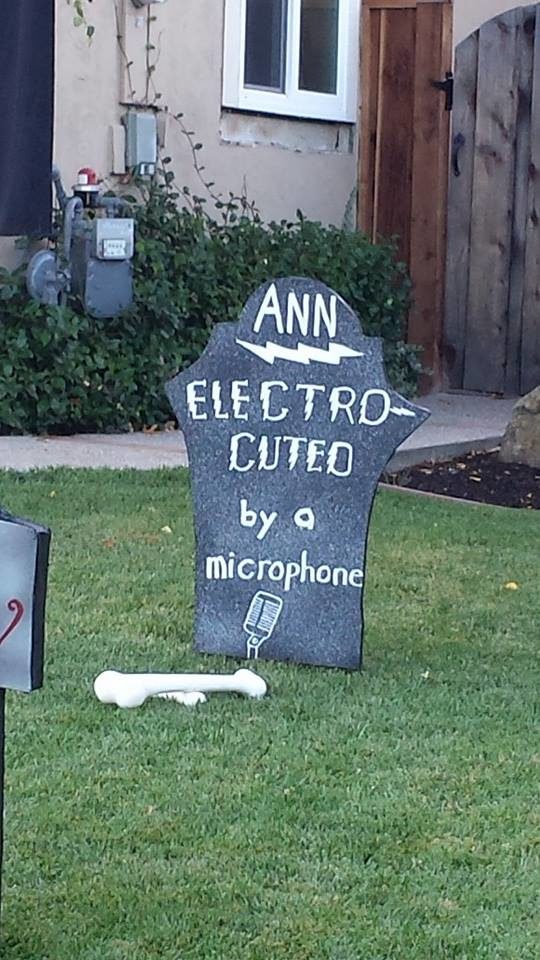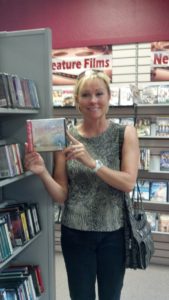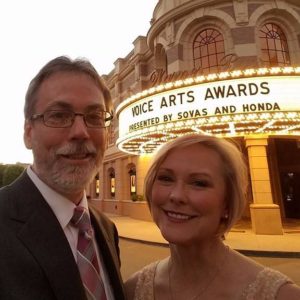FOR NARRATORS JUST STARTING OUT – “Best Practices”
Best Practices are there for our safety
FOR NARRATORS JUST STARTING OUT– BEST PRACTICES
Social media is rife with advice for audiobook narrators. Usually we’re giving it to one another, and usually it’s hit or miss whether you get solid, “best practices” advice from seasoned pros. Newbies are quick to chime in with their experiences, and fellow newbies don’t always take the time to “Audible” the advice-giver (narrators’ equivalent of “Googling” someone) to make sure they’re qualified to stand as an authority, and thus, absorb faulty, misleading, or plain wrong information.
I’ve put together a general list of “Best Practices for Audiobook Narrators” that will hopefully clarify some questions that surface in our community, over and over and over and over… As with anything, do what you want to, new narrators, but please know that these points are time-tested and true. Can you become successful in other ways? Yes, you can, anything is possible, but the guidance in this blog is here to help you, to smooth your way, and hopefully help our industry avoid poor-quality audiobooks which may dissuade listeners from continuing to listen to audiobooks.
Before I launch into the list, this must be stated: LISTEN TO AUDIOBOOKS. Listen attentively. Many of the questions that are brought up on social media can be answered by listening to good audiobooks! If you’re not sure what a good audiobook is, subscribe to AudioFile Magazine and it’s newsletters, and read them word for word. This is very important. Now, on to the meat and potatoes…
- DON’T QUIT YOUR DAY JOB. Being an audiobook narrator is not an instant income replacement for a full-time employee in nearly any field. It takes money to make money, as you’ll see in subsequent points. The reason this is number one, is that if you don’t have the money to start this career journey the “right” way, you’ll be tempted to cut corners on vital things such as hiring a professional proofer/editor/mastering engineer, or purchasing legitimately solid equipment, or getting professional coaching in performance and business aspects of this occupation.
- GET PROFESSIONAL COACHING. Audiobook performance is not simply reading aloud. Different genres require different performance techniques. The business of being an audiobook narrator should also not be approached on a “seat of your pants” philosophy. A business coach can help you chart a course for growth, both financially and in relation to your portfolio. VET THE COACH BEFORE YOU HIRE HIM/HER. There are excellent coaches, and then there are those who don’t have the experience in the industry that would qualify them to instruct others. If you’re unsure how to vet a coach, lurk on the social media groups for narrators and pick a seasoned pro to private message and ask them for their recommendations. You could also do a search of the group to find posts that contain coaching recommendations/endorsements.
- PURCHASE EXCELLENT EQUIPMENT. You don’t have to go for the top-of-the-line most expensive microphone you can find, but do not start out with bargain basement equipment, hoping to make enough money to later upgrade. Industry standard for audiobook recording is a large diaphragm condenser microphone that plugs into a preamp, that boosts the signal that goes into your computer and then your recording software. Key to purchasing equipment that will best serve your needs is to test it first, optimally, in the place where you will be using it. Some retailers will let you return microphones, so if you purchase several and do a mic shootout in your own recording space, you can return the ones that don’t sound so good for your voice. It’s a very good idea to hire a professional engineer to help you pick the right equipment, especially the right mic for your voice, as well as guide you in creating a nice, quiet environment in which to record.
- LEARN ABOUT THE INDUSTRY. Be voracious in your learning. Join as many audiobook and narrator social media groups as you can, and comb through the posts. Use Google to research publishers, fellow narrators, equipment, sound-proofing your booth, and many more things. Basically, if you can think of a question, do the very best you can to research it before you give up and ask someone. Of course, if you’ve taken coaching, you should be able to reach out to your coach if you have a question from time to time. Just be respectful. If your questions are frequent and lengthy, you should hire the coach for refresher sessions. This is their livelihood and they should be compensated appropriately. A smart move would be to join ACX and devour their “HELP” section. They give tutorials on recording, engineering, specs and more. Another excellent resource is the Audio Publishers Association. When you become a member of this organization, you have instant access to their archives of webinars. This is a TOTAL GOLDMINE of information on a broad list of topics.
- AUDITION APPROPRIATELY. This means that if you find a book on ACX that you’re interested in auditioning for, make sure you can perform what the book’s profile says it is. For example, if the description says it’s set in Ireland and the heroine is South African, you need to be able to sustain these accents for the duration of the book, unless the rights holder specifies they want neutral American, no matter what. Or, another example, don’t audition for an erotica book when you have reservations about narrating that type of material. The last thing you want to do is accept a job, then realize that you don’t want to narrate it after all, and back out of the contract. That’s not good for the rights holder, who was counting on you to fulfill your obligation, and it’s not a good way to form your reputation or what is called today, “branding”.
- BECOME AN EXPERT. If you’re auditioning for audiobook work through platforms such as ACX, Findaway Voices, or something else, you are responsible for being the professional who produces the audiobook. YOU handle all aspects of performing, recording, proofing, editing, and engineering the audiobooks you agree to produce. The rights holder is not necessarily your collaborative partner (read: they are not responsible to proof your work and catch all of your mistakes.) The rights holder DOES have the right to listen and collaborate with you in this manner, but ultimately it is your responsibility to deliver a retail-ready audiobook. You are responsible for knowing how the industry handles citations, chapter headings, figures/charts/illustrations, whether or not to read the dedication, what goes into the retail sample, and where to go for pronunciation help (NOTE: It’s not always the author!). A rights holder on ACX quite often has never gone through the process of making an audiobook, and thus does not know what common practice is when it comes to details such as this. I would further stretch that to include that they may have never even listened to an audiobook although this is rapidly changing. If you happen to be working with a major audiobook publisher, they will have all the answers you need.
- CHARGE AN APPROPRIATE RATE. Familiarize yourself with SAG-AFTRA minimum rates, even if you are not a member of the union. Audiobook narration is not something you should discount because you’re “new” or your deadline needs to be longer because you work during the day, or whatever. Giving a lowball rate drags down the whole industry.
- PRE-READ AND PREPARE THE MATERIAL BEFORE YOU BEGIN RECORDING. This is of such importance that I cannot stress it enough. Here are some hurdles that can spring up during narration when one has not taken these very basic steps:
- -a character you’ve voiced throughout the book suddenly reveals in the last chapter, that they have a strong accent.
- -questionable content you may not ethically want to narrate, surfaces. You’ve already recorded a sample for the rights holder’s approval, and you are fully in the middle of narrating the text. Now is not the time to back out of your obligation.
- -difficult pronunciations slow down narration to the point of affecting your performance and deadline. You need to research pronunciations and have them handy so that you can correctly pronounce those words on the fly.
- HIRE A PROFESSIONAL PROOFER/EDITOR/ENGINEER to do the post-production on your project. It is entirely commendable to learn how to do these necessary tasks yourself, but the bottom line is that you read the text with your own comprehension. You will probably not catch much of what a different set of ears will catch. Plus, the level of excellence on your final product will be much better than you could produce, being that your focus is on performance and connecting with the text, NOT on wearing all those other hats. “But I can’t afford to hire out!” you say. I encourage you to go back and re-read #1.
- WORK WITH THE RIGHTS HOLDER ON AN INDEPENDENTLY PUBLISHED TITLE, BUT DO NOT KOWTOW TO UNREASONABLE REQUESTS. Best practices here are that you seek input on the first 15-minute sample you submit, and, choose a segment of the book that includes the main characters in dialog, or an especially suspenseful scene, or if it’s a romance, a spicy scene, or even a smattering of each of those. “First 15” does not mean the first 15 minutes of text in the book. This is your chance to show the rights holder your talent, and to sync up with what they want for their book. After they’ve approved that sample, you’re off to the races. Now you record the whole book, then upload it for the rights holder. She/He can then listen to and provide feedback limited to correcting errors, not to ask for re-reads with their directorial input. If there happens to be changes to the manuscript, you of course have the power to make changes to your narration free of additional charge to the rights holder, but extensive changes should be charged for on top of the agreed-upon rate.
- MAKE EVERY SINGLE DEADLINE. MAKE EVERY SINGLE DEADLINE. MAKE EVERY SINGLE DEADLINE.
You are embarking on this journey to become the best narrator you possibly can be and work for the best clients you can think of, whether that means independently-publishing authors, or the “big” audiobook publishers. You may come to realize that this is an endeavor that you gradually ease into, while you continue working your “day job”. Very few people can quit their day job and replace that income immediately, with their audiobook narration earnings. It usually takes years before a narrator can earn enough to sustain themselves/their family on their narration income.
Many, many individuals have been down this road before you. We’ve made many mistakes and come away better for it; that’s how Best Practices are established. You have every right to make your own way in this arena, and run your business the way you want to, but please remember that we are a tightly-knit community. We want each other to succeed and put quality product out there at a reasonable price. As has been said before by my colleagues, “a rising tide lifts all boats.”



 Steamy romance and erotica make up a very popular and lucrative genre in the literary world and I’m curious about how a narrator handles the subject matter, from a performance perspective. A narrator must verbally act out those intimate scenes, saying words that many people only ever utter in the safety of a darkened room with someone we love and know intimately.
Steamy romance and erotica make up a very popular and lucrative genre in the literary world and I’m curious about how a narrator handles the subject matter, from a performance perspective. A narrator must verbally act out those intimate scenes, saying words that many people only ever utter in the safety of a darkened room with someone we love and know intimately. 

 FREQUENTLY ASKED QUESTIONS ABOUT AUDIOBOOK CREATION
FREQUENTLY ASKED QUESTIONS ABOUT AUDIOBOOK CREATION